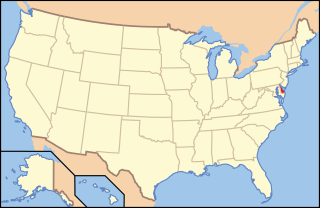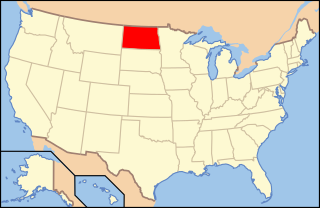Related Research Articles

Mark Leno is an American politician who served consecutively in both houses of the California State Legislature from 2002 to 2016. A Democrat, he represented the 11th Senate district, which includes San Francisco and portions of San Mateo County, from 2012 to 2016. Until the 2010 redistricting came into effect, he represented the 3rd Senate district (2008–2012). Prior to being elected to the State Senate in 2008, Leno served in the California State Assembly, representing the 13th district.

Equality California (EQCA) is a non-profit civil rights organization that advocates for the rights of LGBT people in California. It is the largest statewide LGBT organization in the United States and the largest member of the Equality Federation. The organization is based in Los Angeles.

Equality Utah is an American non-profit 501(c)(3) organization which is Utah's largest LGBT rights group based in Salt Lake City, Utah. The organization is a member of the Equality Federation.

Lesbian, gay, bisexual, transgender, and queer (LGBTQ) people in the U.S. state of Delaware enjoy the same legal protections as non-LGBTQ people. Same-sex sexual activity has been legal in Delaware since January 1, 1973. On January 1, 2012, civil unions became available to same-sex couples, granting them the "rights, benefits, protections, and responsibilities" of married persons. Delaware legalized same-sex marriage on July 1, 2013.

Lesbian, gay, bisexual, transgender, and queer (LGBTQ) people in the U.S. state of North Dakota may face some legal challenges not experienced by non-LGBTQ residents. Same-sex sexual activity is legal in North Dakota, and same-sex couples and families headed by same-sex couples are eligible for all of the protections available to opposite-sex married couples; same-sex marriage has been legal since June 2015 as a result of Obergefell v. Hodges. State statutes do not address discrimination on account of sexual orientation or gender identity; however, the U.S. Supreme Court's ruling in Bostock v. Clayton County established that employment discrimination against LGBTQ people is illegal under federal law.

Lesbian, gay, bisexual, transgender, and queer (LGBTQ) people in the U.S. state of Kentucky still face some legal challenges not experienced by other people. Same-sex sexual activity in Kentucky has been legally permitted since 1992, although the state legislature has not repealed its sodomy statute for same-sex couples. Same-sex marriage is legal in Kentucky under the U.S. Supreme Court ruling in Obergefell v. Hodges. The decision, which struck down Kentucky's statutory and constitutional bans on same-sex marriages and all other same-sex marriage bans elsewhere in the country, was handed down on June 26, 2015.

Lesbian, gay, bisexual, transgender, and queer (LGBTQ) people in the U.S. state of Kansas have federal protections, but many face some legal challenges on the state level that are not experienced by non-LGBTQ residents. Same-sex sexual activity is legal in Kansas under the US Supreme Court case Lawrence v. Texas, although the state legislature has not repealed its sodomy laws that only apply to same-sex sexual acts. The state has prohibited discrimination on the basis of sexual orientation and gender identity in employment, housing and public accommodations since 2020. Proposed bills restricting preferred gender identity on legal documents, bans on transgender people in women's sports, bathroom use restrictions, among other bills were vetoed numerous times by Democratic Governor Laura Kelly since 2021. However, many of Kelly's vetoes were overridden by the Republican supermajority in the Kansas legislature and became law.
Arizona SB 1062 was an Arizona bill to amend an existing law to give any individual or legal entity an exemption from any state law if it substantially burdened their exercise of religion, including Arizona law requiring public accommodation.
The state of North Dakota has improved in its treatment of lesbian, gay, bisexual and transgender residents in the late 1990s and into the 21st Century, when the LGBT community began to openly establish events, organizations and outlets for fellow LGBT residents and allies, and increase in political and community awareness.

The Public Facilities Privacy & Security Act, commonly known as House Bill 2 or HB2, was a North Carolina statute passed in March 2016 and signed into law by Governor Pat McCrory. The bill amended state law to preempt any anti-discrimination ordinances passed by local communities and, controversially, compelled schools and state and local government facilities containing single-gender bathrooms to only allow people of the corresponding sex as listed on their birth certificate to use them; it also gave the state exclusive rights to determine the minimum wage.

Mississippi House Bill 1523, also called the Religious Liberty Accommodations Act or Protecting Freedom of Conscience from Government Discrimination Act, is 2016 state legislation passed in direct response to federal rulings in support of same-sex marriage. MS H.B. 1523 provides protections for persons, religious organizations, and private associations who choose to provide or withhold services discriminatorily in accordance to the three "deeply held religious beliefs or moral convictions" which are specifically outlined in the bill. These protected beliefs are 1) that marriage is and should be an exclusively heterosexual union, 2) sex should not occur outside of marriage, and 3) that biologically-assigned sex is objective and immutably linked to gender.
The Mississippi Religious Freedom Restoration Act is a 2014 act that states that "government should not substantially burden religious exercise without compelling justification. The act protects religious people from legal repercussions if they verbally condemn the lifestyle or actions of LGBTQ persons. Additionally, the bill expands the definition of an individual to include businesses, and so if a business owner thinks their religious beliefs would be violated by delivering service to an LGBT person, the Act allows them to deny them service, a move that some commentators have called "anti-gay segregation".
The Mississippi Student Religious Liberties Act of 2013 is a 2013 act which protects the views of students in any educational institution from being reprimanded for their religious views. Under the bill, a school may not discipline a student for expressing anti-LGBT views either verbally or through written assignments.
Senate Bill 2, officially called An act to allow magistrates, assistant registers of deeds, and deputy registers of deeds to recuse themselves from performing duties related to marriage ceremonies due to sincerely held religious objection., is a 2015 North Carolina anti-LGBT law that allows for an exemption for state magistrates, assistant register of deeds, or deputy register of deeds who object to participating to issuing marriage licenses for marriages they object to "based upon any sincerely held religious objection."
Senate Bill 297 is a 2015 Utah anti-LGBT act that allows for an exemption for individuals, religious officials, religious organizations, and government officers and employees who object to participating to issuing marriage licenses for marriages they object to based on "deeply held beliefs about marriage, family, and sexuality."
A bathroom bill is the common name for legislation or a statute that denies access to public toilets by gender or transgender identity. Bathroom bills affect access to sex-segregated public facilities for an individual based on a determination of their sex as defined in some specific way, such as their sex as assigned at birth, their sex as listed on their birth certificate, or the sex that corresponds to their gender identity. A bathroom bill can either be inclusive or exclusive of transgender individuals, depending on the aforementioned definition of their sex.
South Dakota House Bill 1008, also known as House Bill 1008, HB 1008, and the Bathroom Bill, was a bill passed by the South Dakota Legislature in 2016 and vetoed by Governor of South Dakota Dennis Daugaard. The purpose of the bill was to restrict bathroom and locker room use by transgender students to facilities that matched their sex assigned at birth, not their gender identity. It was the first such bathroom bill to be passed in a state legislature in the U.S. and sparked a chain of similar bills across the nation. HB 1008 was opposed by several LGBT rights organizations, such as the HRC, GLSEN, and ACLU.
House Bill 1111, officially called An act to amend Tennessee Code Annotated, Title 1, Chapter 3, relative to the construction of statutes, is a 2017 law in the state of Tennessee that added the following text: "undefined words shall be given their natural and ordinary meaning, without forced or subtle construction that would limit or extend the meaning of the language, except when a contrary intention is clearly manifest."
Senate Bill 1556, officially called An act to amend Tennessee Code Annotated, Title 4; Title 49 and Title 63, relative to conscientious objections to the provision of counseling and therapy, is a 2016 anti-LGBT law in the state of Tennessee that allows licensed counselors in private practice to terminate care or refer away clients because of moral objections to how the client identifies.
Utah Senate Bill 296 is a law passed by the Utah State Legislature and signed into law by Governor Gary Herbert in 2015. SB 296 amended the 1997 Utah Antidiscrimination Act to add sexual orientation and gender identity as protected classes under state law when it comes to housing and employment. The law was described by various news outlets and commentators as the "Utah Compromise".
References
- 1 2 SB 175
- ↑ Ring, Trudy (2016-03-16). "Kansas Asks Governor to Let Student Groups Turn Away the Gays". The Advocate . Retrieved 2017-06-06.
- ↑ "Kansas House of Representatives Sends Legislative Attack on LGBT College Students to Governor", Human Rights Campaign
- ↑ California bans state-paid travel to Tennessee in reaction to law